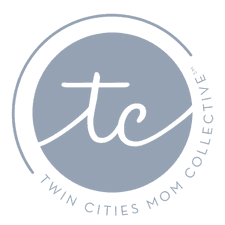This post is sponsored by Northern Star Scouting
The principle of “show, don’t tell” is well-known to storytellers. It’s the idea that messages are much more powerful when demonstrated through action rather than explanation. This is also true for positive character attributes, and kids especially watch the people around them to learn proper behavior.
That is why Scouting is such a powerful teaching tool with far-reaching impact. From nurturing positive traits to building important life skills, Scouting offers a fun, scientifically proven way to help kids thrive.



Scientifically Proven Results
According to a study from the International Journal of Environmental Research and Public Health, Scouting is beneficial for teaching conflict resolution and improving students’ grades.
Studies from the World Organization of the Scout Movement (WOSM) and Tufts University also reveal that Scouting boosts self-esteem and positive character traits such as trustworthiness, helpfulness, and obedience.
An especially important aspect of the Tufts University study is that researchers made character observations from the very beginning to determine whether there was a difference between the children who were starting Scouting and those who weren’t.
The study found no such difference, which meant that they could rule out the idea that only children of higher character joined Scouting in the first place.
Skills for Life
Scouting provides the environment for life lessons to flourish. Because the children are surrounded by peers who are working toward the same goal, they can focus on achieving objectives rather than worry about being part of — or excluded from — cliques.
You can expect Scouts to learn how to:
Cope with Stress
From engaging in strenuous activities that will stretch their problem-solving skills to taking part in group activities with real objectives, Scouts must learn to work together and overcome conflict. The coping mechanisms they develop will remain with them throughout their lives.
Build Self-Confidence
By overcoming challenges and obstacles, Scouts learn they can leave their comfort zones and find new, rewarding interests.
Stay Fit
Physical exercise is integral to being a Scout. Learning how to respect one’s own body and do what’s necessary to stay healthy early in life can create a solid foundation for kids’ health as they grow into adults.
Nurture Intellectual Curiosity
Scouting encourages critical thinking, taking in information, and processing that information. Exploring nature, learning about the animals and plants that surround them, and having to recall the information they’ve learned can sharpen kids’ minds.
Apply Survival Skills
Each Scout must take the skills they’ve learned and use them to stay safe and develop a healthy respect for nature. Understanding the possible dangers in the wilderness and how to thrive in adverse conditions prepares Scouts for handling emergencies throughout their lives.
Cooperate with Others
In Scouting, every member of a group must pull their weight and rely on others to reach a goal. These collaboration opportunities foster communication, honesty, and friendships that last a lifetime.
Lead by Working with Others
While Scouting emphasizes group cooperation, leadership training is also emphasized. Scouting teaches children how to understand the nature of leadership from both perspectives. Kids learn how to solve problems and challenges by working with others and that being a leader isn’t simply telling their group what to do.
Excel in School
Learning how to learn is a fundamental skill. By teaching children to consider and analyze information, Scouting gives them a head start in their education. Time management, information research, and organization skills can result in better grades and more engagement at school.
 Adventure Is Calling at Northern Star Scouting
Adventure Is Calling at Northern Star Scouting
Scouting can leave a long-lasting positive impact on kids that helps them grow into happier and healthier adults. If you are interested in Scouting for your child, consider Northern Star Scouting.
We offer programs for boys and girls beginning at kindergarten through age 21. Young children are introduced to Scouting with Cub Scouting, while Scouts, BSA increases both the challenges and rewards for members in grades 6 through 12.
Venturing is available for ages 14 through 21, as well as for 13-year-olds who have completed the 8th grade. Sea Scouting is part of the Venturing program and teaches boating skills and maritime history. Members aged 14 to 21 can also join Exploring, which focuses on job training and professional development.
Give your children an experience they’ll carry with them for the rest of their lives. Contact Northern Star Scouting to get connected today!



 Adventure Is Calling at Northern Star Scouting
Adventure Is Calling at Northern Star Scouting